HJ Bott: a Baroque Minimalist at Anya Tish Gallery
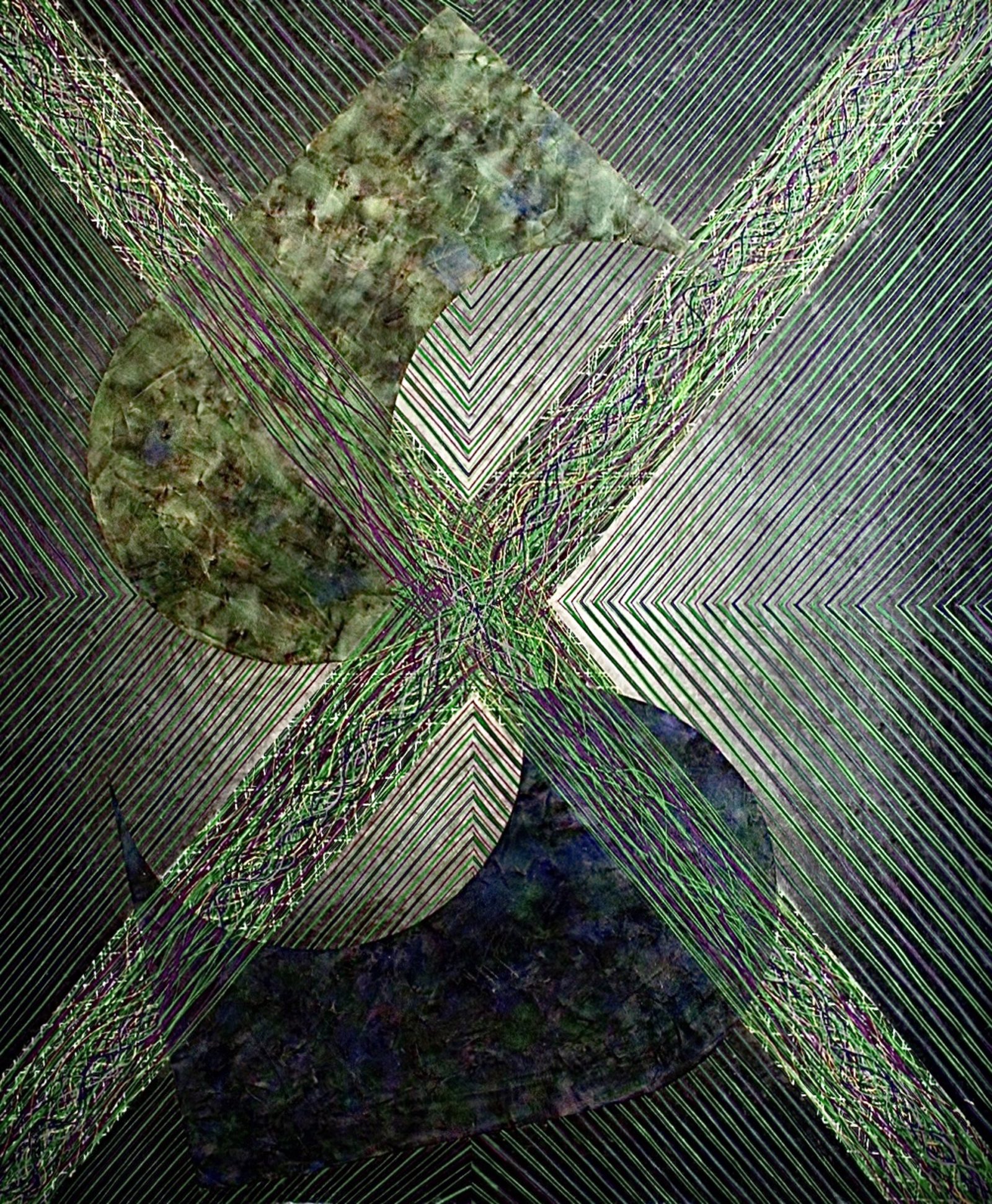
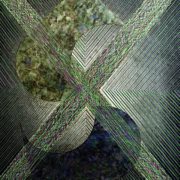
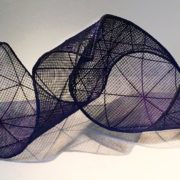
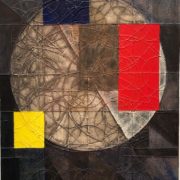
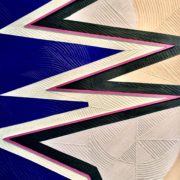 +3
+3 HJ Bott: a Baroque Minimalist at Anya Tish Gallery
HJ Bott: a Baroque Minimalist at Anya Tish Gallery
HJ Bott: a Baroque Minimalist at Anya Tish Gallery
HJ Bott: a Baroque Minimalist at Anya Tish Gallery
HJ Bott: a Baroque Minimalist at Anya Tish Gallery
HJ Bott: a Baroque Minimalist at Anya Tish Gallery

“Damndazzled Generalizing Specificity,” 2003,
Glazed vinyl and acrylic polymers on polyflax, 60 x 50 in
First and foremost, H. J. (Harvey) Bott (b. 1933) is 88 years old. Age-related weaknesses forced him to give-up making sculpture, so the chance to see Bott’s three-dimensional artworks is a score.
Insensitive nosy witch that I am, when Bott was 81years old I asked him if he was running out of time to make art. Yep. “It’s all about to dissipate.” He then recalled his youth as an Airborne Ranger who “performed Counter-Intelligence shit,” and other physically vigorous stuff like “drag strip racing.” Surely aware of his mortality, Anya Tish Gallery offers a mini survey of Bott’s career with “HJ Bott: a Baroque Minimalist,” an exhibition of paintings and sculptures created between the 1970s and 2000s. The show opens Saturday, October 23, 2021.
The best way to inform readers about Bott is to repeat some of the things he told me through the years. Trust me, you’ll gain insight. This is a man who turned down a math scholarship to Rice University in the 1950s, “because the art department sucked. My parents loved this.”
“Math originates all.” Bott is telling me that the abstract geometric forms in his art are based on mathematical formulas.
Quadratic? Jesus Christ, Harvey. You’re talking over my head.
Bott hoped I could understand the math behind the linear patterns in his painting “Systems A-GO-GO” which is schematically tied to his self-invented “Displacement-of-Volume” system.
“The painting ‘Systems A-GO-GO’ was directly inspired by π (pi the mathematical constant 3.14159). You see I’m working here with the relationship of the planet’s dimensions relative to the Great Pyramid, the perimeter of which is analogous to the equator’s circumference. Also, the pyramid is nearly at the center of the Earth’s landmass and was probably exactly at the center when constructed, until tectonic plates caused landmass shifts. The significance of these measurements to my Displacement-of-Volume system is paramount, relative to the left/right and top/bottom axis, as well as the inclination (almost 52º) of the pyramid. And “Scribble Morphings,” based on the basic markings that are universal to all cultures, overlay the DoV. Do you need me to explain more about the planet’s dimensions and all this other stuff I’ve been sputtering?”
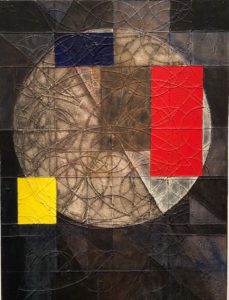
I needed a drink. Alas, Bott and I meet on other levels, such as the art’s anthropological, historical or metaphysical associations, or its narrative based on particle physics, which I grasp intuitively. And, of course, the uncompromising visual experience in which colors and shapes perform optical magic, surfaces seem to shift and pulsate.
Here’s what happened in 1972. Bott was fiddling around with shapes, drew a perfect square, then drew semi-circles in it, and came up with a formula to combine shapes. Repetition of the formula resulted in ornate patterning. Bott labeled his conceptual impulse “Displacement-of-Volume or DoV System and began using it in paintings and wire sculptures. Narrative drives the configuration of patterns and color choices, he might contemplate military battles or string theory for instance, or something that pisses him off, like profit-hungry corporate conglomerates, or elitism. Guaranteed to send Bott on a rant. Universal archetypes inspire the images.
Such as Egyptian antiquities. “The newest findings about pre-historic Egyptian cultures, as I understand them, are hieroglyphics showing cables along with copper electrodes that denote a power source for the pyramids, since there has never been evidence of the pyramids actually being tombs. This interests me enormously because my DoV and resulting art works have to do with OBJECT measurements, even though measurements themselves are but means to create an object. Does this make sense? There is so much more to explore, with time running out, and then I would make comparisons with the Mayan culture.”
So do primordial fossils. “Another narrative-driven work, the painting “OH-GEE” has the subtitle “Ordovician Graptolites” on the back to express invertebrate Plankton-like fossils from the Paleozoic Era about 500 million years ago. Don’t you find its yin/yang-shaped “commas” jazzy? We can trace such basic scribbles back to initial inhabitants of the Olduvai Gorge.”
Most profound, when Bott used linear patterns in the painting “Polchinski’s Pertubations,” to artistically investigate string theory, he did no less than delve into our multidimensional existence. During discussions, Bott shared “imperative” reading. “Physics enters the new works through my reading of Edwin A. Abbott’s “Flatland,” the classic on perception which I give all my Perspective Drawing students, “Cosmos,” by Carl Sagan, Michio Kaku’s “Hyperspace, Parallel Worlds and Introduction to Super String,” as well as Brian Greene’s “Fabric of the Cosmos.” The painting “Systems A-GO-GO” is based on Mario Livio’s “The Golden Ratio.” Forgive me for listing books like a pretentious ass but a “Houston Press” writer used innuendo to snicker at my naming my painting after Joseph Polchinski, the big daddy of string theory. She obviously failed to grasp the extent to which this scientific material penetrates the DoV, Phenomena-of-a-Line, and Basic Scribbles components of my art.
Bott said “unequivocally,” he is a Baroque-Minimalist, and finds no contradiction in the term. I get his point. Baroque was a rejection of the balance of the High Renaissance in the form of seductive overelaboration, brimming with optical and emotive power.
Art critic Donna Tennant hit the bull’s eye, “a brilliant mind coupled with an insatiable desire to create.”
4411 Montrose Blvd
Unit 500
Houston, TX 77006
anyatishgallery.com




































